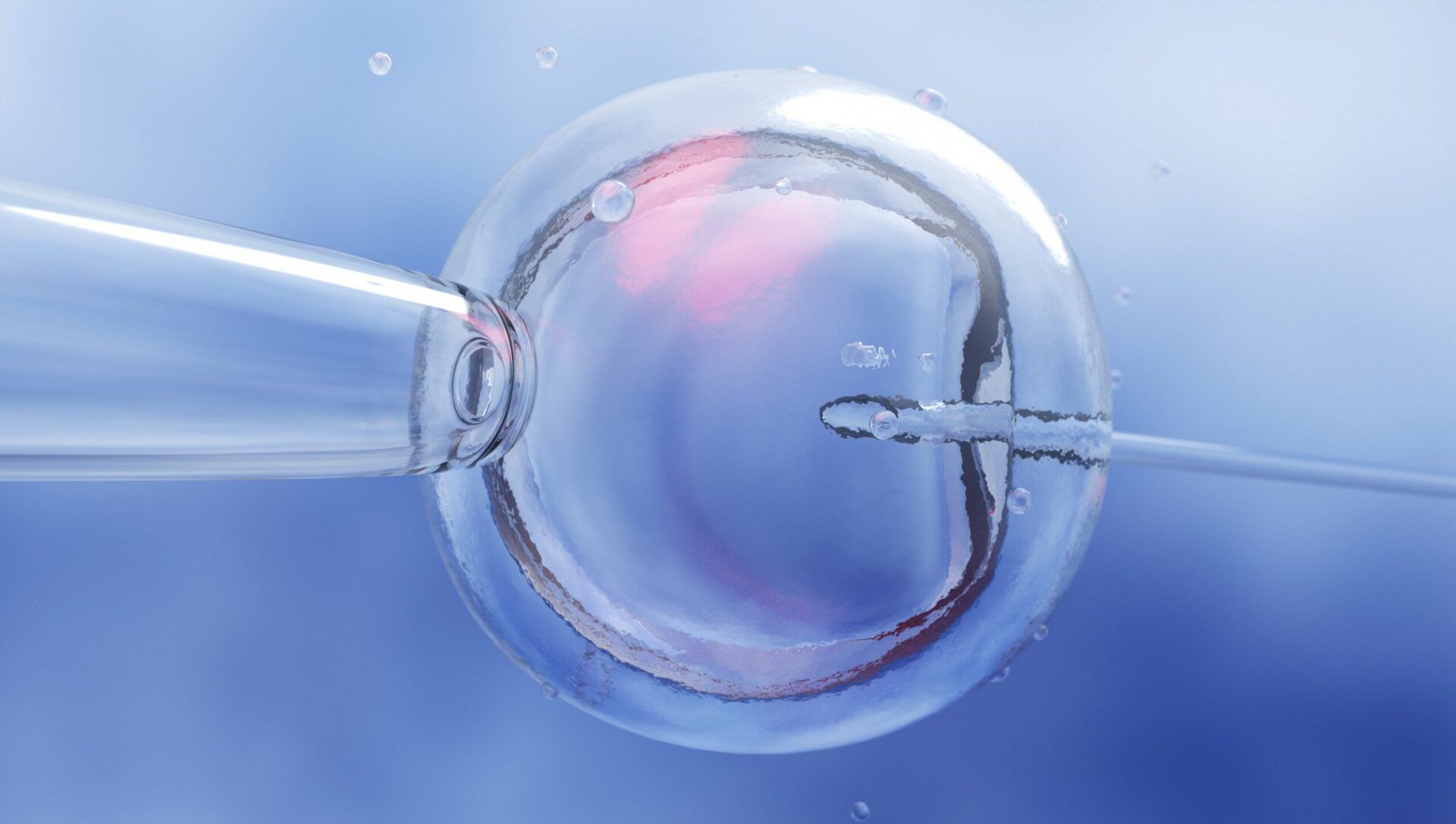How to increase chances of pregnancy
Planning to try for a baby? Beginning your journey or expanding your family is an exciting time. And while some couples achieve a quick pregnancy, it can sometimes take a little longer than expected.

Planning to try for a baby? Beginning your journey or expanding your family is an exciting time. And while some couples achieve a quick pregnancy, it can sometimes take a little longer than expected. The good news is that approximately 80% of couples will conceive within 12 months of trying, especially for women under 35 years of age.
To help you along the way, we share our best tips for boosting your chances of pregnancy each month – from understanding the best time to have intercourse to simple lifestyle changes you can make.
1. Understand Your Fertile Window
Knowing when you are most fertile is critical for achieving pregnancy – but many people do not realise how short their fertile time is each month. While the basics of conception may seem straightforward, ie. egg is released and fertilized by the sperm, knowing when to have sex for this to occur is what matters.
A typical menstrual cycle lasts around 28 days, with ovulation occurring around day 14 when the egg is released from the ovary, ready for fertilisation. However, eggs only survive for around 12-24 hours, so the time you can actually get pregnant each month – known as your ‘fertile window’ – is, in fact, very short.
Knowing when you ovulate is critical to determining your fertile window. There are some easy and proven natural ways you can determine when you ovulate which we have listed below.
Chart your cycle
Logging your menstrual cycle can help you learn roughly when your fertile days are. Mark the first day of your period as Day 1 and count the number of days until your next period to determine your cycle length. Ovulation occurs around 14 days before your next period. In a typical 28 day cycle, ovulation happens at the midpoint of your cycle, ie. day 14. This means your most fertile days (or your fertile window) are days 12 – 14 (the day of ovulation and 2 days prior).
If your cycle is shorter or longer than 28 days, note your expected period date and work backwards two weeks for your approximate fertile window. For example, if you have a 35 day cycle, ovulation occurs around day 21 (making your fertile window days 19 – 21). If you have a 25 day cycle, for example, ovulation occurs around day 11 (making your fertile window days 9 – 11).
Changes in cervical mucus
Checking your cervical mucus throughout your cycle is the easiest way to naturally spot when ovulation is about to happen. You may notice that your cervical mucus changes in consistency and appearance, becoming more slippery and transparent to help the sperm reach the egg. Some women refer to it as ‘egg white’. If you see this change, it could be a good indication that now’s a good time to have sex.
Rise in temperature
Some women chart their basal body temperature – your body’s temperature when at rest - to track ovulation, as it is thought to rise slightly after ovulation. However, this is not the most accurate method, as changes in temperature can also be due to other reasons. You may also need to chart your basal body temperature for a few cycles to understand if it changes. For these reasons, many women use this method along with others.
Ovulation prediction kits
Ovulation prediction kits are widely sold and are accurate, quick and easy. They work much like a home pregnancy test. The special strip identifies the level of LH (Luteinising Hormone) in your urine, which surges just before ovulation. A positive ovulation prediction test means ovulation is likely in the next day or so. If you have a regular cycle, start to test for ovulation in the days running up to your cycle's halfway point. If you have an irregular cycle, start testing shortly after the end of your period.
If you are not sure if you are ovulating, or if you have a very irregular cycle or a condition that can affect ovulation, such as Polycystic Ovarian Syndrome (PCOS), see your GP or a Fertility Specialist. Further tests may be needed to understand your cycle.
2. Time Intercourse Correctly
Once you have tracked ovulation and know your fertile window, to improve your chances of pregnancy, you need to have sex at the right time. The best time for intercourse is before and during ovulation, so sperm are already in the fallopian tubes, ready to fertilise the egg when it is released.
Sperm can survive for up to five days in the reproductive tract, so there is no need to put yourself under pressure to have intercourse every day or multiple times a day. Every other day is usually sufficient, however, do what feels right for you and your partner.
3. Avoid Smoking, Drugs, Alcohol and Stress
Another way you can help to increase your chances of pregnancy is to quit smoking, recreational drug use and alcohol. If you can limit the amount of stress, this may also help.
Alcohol & fertility
Studies have shown that alcohol intake can reduce fertility in both men and women. In women, moderate to heavy drinking has been shown to reduce the chances of conception2. While in men, studies have shown that alcohol consumption affects male reproductive function, including semen volume, antioxidant enzymes, and reproductive hormones. So if you want to maximise your chances of pregnancy, you should reduce or cut out alcohol altogether.
Smoking & fertility
Evidence has shown that smoking reduces fertility in women, with studies revealing that women who smoke take longer to conceive, have reduced pregnancy rates, and decreased chance of pregnancy4.
In men, smoking is linked to reduced sperm quality and sperm DNA damage. And although more research is needed on vaping and fertility, the chemicals are thought to also have a negative impact on both male and female fertility. It’s best to quit all forms of smoking to boost your chances of pregnancy.
Recreational drugs & fertility
Recreational or illegal drugs should be avoided when you are trying for a baby. Although studies are limited, it is thought that reproductive health in both men and women is negatively impacted by drugs such as marijuana which can have a negative impact on fertility hormones, ovulation, and semen parameters. Men should also avoid performance-enhancing drugs such as steroids, which are harmful to male fertility and could cause longer- term issues.
Stress & chances of pregnancy
Low levels of stress have not been proven to cause fertility problems however research suggests that high stress levels can make it harder to get pregnant. Studies from both the USA and the UK have found that women with higher levels of a stress marker took longer to conceive than those with lower levels. So managing stress could be a simple way to support your chances of pregnancy.
4. Eat Well and Exercise

It’s important to be as healthy as you can be when you are trying for a baby. So if you don’t have a particularly good diet, or your BMI is high, now is a good time to make some lifestyle changes to ensure you are getting the nutrition you need to support a pregnancy.
Diet is important when you are trying for a baby, as studies have shown that eating lots of saturated fats, cholesterol, animal proteins, and high-glycemic carbs is closely linked to infertility in both men and women. On the other hand, a diet high in plant proteins, vegetables, fruits, and antioxidants – such as the Mediterranean diet - may help improve fertility.
A healthy BMI is also important for pregnancy. Being overweight or underweight negatively affects reproductive health in both men and women, making it more difficult to conceive.
5. Don’t Wait to Seek Help

If you are aged 35 years or over and have been trying to conceive for six months or more or are under 35 and have been trying for 12 months or more, without success, then it may be worth seeing your GP or a Fertility Specialist. Age is one of the biggest factors affecting your ability to conceive, so it is important that you seek help sooner rather than later.
Not conceiving quickly does not necessarily mean you have fertility issues. It can take time to get pregnant, and this is perfectly normal. But if you have been tracking ovulation, timing intercourse correctly and eating well, and you have still not conceived, simple, non-invasive fertility tests can be performed to check ovulation, ovarian reserve, and assess sperm health before deciding your next steps.
If you do need assisted reproductive treatments, you are not alone. One in six Australian couples experience infertility. Infertility is defined as the inability to conceive after six months of unprotected intercourse if over 35 years of age and for those under 35 years, after a year of unprotected intercourse. The definition of infertility also includes anyone who is unable to achieve a successful pregnancy based on their sexual orientation which allows those who require medical intervention (same sex female couples or single woman for example) to achieve a successful pregnancy either as an individual or with a partner.
There are many types of fertility treatment, not just IVF, that can help you to have a baby. Please contact us to find out more.
Sources
Fertility and preconception – Royal Australian College of General Practitioners (RACGP)<link-link-1758084433239-7>https://pmc.ncbi.nlm.nih.gov/articles/PMC3984126/</link-link-1758084433239-0>
The association between alcohol intake and fecundability during menstrual cycle phaseshttps://pubmed.ncbi.nlm.nih.gov/34102671/
Investigating the association between alcohol intake and male reproductive function: A current meta-analysishttps://www.sciencedirect.com/science/article/pii/S2405844023029304
Tobacco in Australia – Smoking & Fertility https://www.tobaccoinaustralia.org.au/chapter-3-health-effects/3-6-reproductive-health-and-smoking
Pregnancy and smoking, vaping and tobacco https://www.health.gov.au/topics/smoking-vaping-and-tobacco/audiences/pregnancy#smoking-or-vaping-can-affect-trying-to-fall-pregnant
Effects of marijuana on reproductive health: preconception and gestational effectshttps://pmc.ncbi.nlm.nih.gov/articles/PMC8580253/#S28
Use of Anabolic Androgenic Steroids and Male Fertility: A Systematic Review and Meta-analysis https://pubmed.ncbi.nlm.nih.gov/38322636/
Preconception stress increases the risk of infertility: results from a couple-based prospective cohort study – the LIFE studyhttps://pmc.ncbi.nlm.nih.gov/articles/PMC3984126/
Dietary patterns and fertility https://pmc.ncbi.nlm.nih.gov/articles/PMC10886842/
Potential Adverse Effects of Female and Male Obesity on Fertility: A Narrative review https://pmc.ncbi.nlm.nih.gov/articles/PMC7695350/
Related Articles

Why You Should Consider Genetic Carrier Screening
When you’re planning a pregnancy - either naturally or through fertility treatment such as IVF - y...

The Two Week Wait
If you are trying to conceive you will be familiar with the ‘two week wait.’ This is the stretch o...

What is In Vitro Fertilisation - And How Does it Work?
In Vitro Fertilisation - known as IVF - was once a medical miracle. We’ve come a long way since 19...